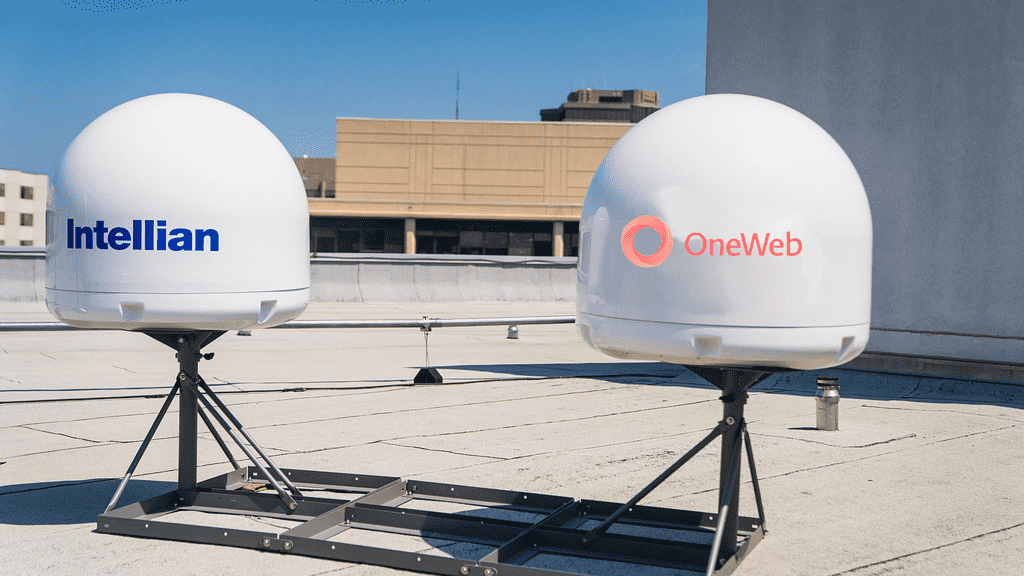Eutelsat CEO: EU Satellites Can Fulfill Ukraine’s Military Communications Needs
18 March, 2025 Illustration of the OneWeb satellite. Photo by Airbus Eva Berneke, CEO of the European satellite communications operator Eutelsat, said that the company is the only alternative to Starlink for Ukraine.
According to The Kyiv Post, Berneke noted that although Eutelsat's satellite constellation has less capacity than Starlink, it provides "perfect coverage" over Ukraine. "I don't think it's a big problem... for important military needs, the capacity we have today in Ukraine is more than enough," she said. She also explained that Eutelsat needs fewer satellites to provide the same capacity because their orbit is located at a greater distance from the Earth.
 A OneWeb terminal. Photo credits: bcsatellite
A OneWeb terminal. Photo credits: bcsatellite
According to her, the company provides services to businesses,governments, and customers in the field of maritime and air transport, so it does not currently have sufficient capacity to fully meet the needs of the civilian population. At the same time, Eutelsat is eager to participate in negotiations on European communications sovereignty.
"These are highly relevant talks today with Ukraine but should be taking place everywhere," Berneke emphasized.
European alternatives to Starlink
The European Union is in talks with four satellite internet operators to replace Starlink in the Ukrainian Defense Forces. Among the potential suppliers are Luxembourg's SES, Spain's Hisdesat, Britain's Viasat, and the French-British Eutelsat/OneWeb. According to European Commission spokesperson Thomas Regnier, Ukraine is interested in switching to alternative communication systems, including Govsatcom, a pooled network of the EU's existing national government satellite capacity.
 Ovzon T6 and Ovzon T7 satellite terminals. Photo by Ovzon
Ovzon T6 and Ovzon T7 satellite terminals. Photo by Ovzon
The IRIS2 satellite constellation has also been considered, but its deployment is not expected until the 2030s. While IRIS2 remains a long-term alternative, it is not viable for an immediate transition if the Starlinks were to be abruptly shut down.
GovSatCom's initial operational readiness is expected this year but will serve only as an interim solution until IRIS2 is fully implemented.